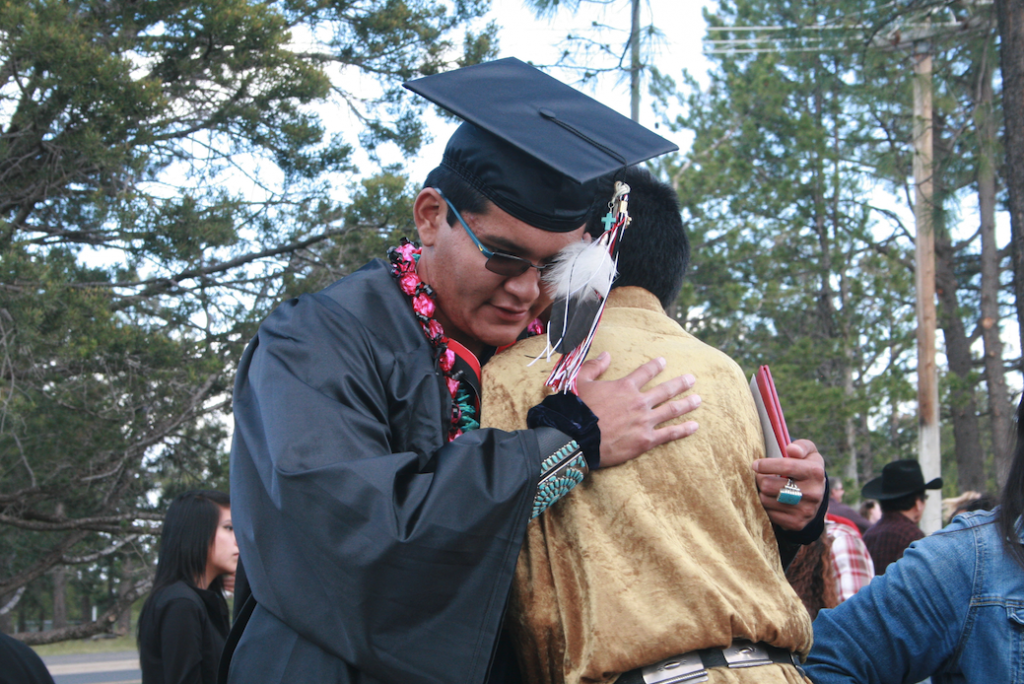Access to postsecondary education can be difficult for some students. The college search process can require money, knowledge and confidence that might dissuade would-be students from pursuing a degree. That is where TRiO programs like Talent Search and Educational Opportunities Centers (EOC) come in. These federally funded programs assist low-income students prepare to enroll in college and help unemployed workers, low-wage workers and returning high school and college students enter or continue a program of postsecondary education.
Talent Search and EOC, which have been funded at NAU since the mid- and late 1980’s have helped thousands of students graduate. Talent Search identifies and assists middle and high school students who have the potential to succeed in higher education. At least two-thirds of the students in each local Talent Search program are from low-income economic backgrounds and families in which neither parent has a bachelor’s degree. Talent Search provides these students with counseling as well as information about college admissions requirements, scholarships and various student financial aid programs so that they can better understand their educational opportunities and options.
EOC focuses on providing services to improve financial and economic literacy. Among these comprehensive services are academic and personal counseling, tutoring and mentoring, career workshops, information on postsecondary education opportunities, student financial assistance and help in completing applications for college admissions. EOC programs offer services to a broad range of adult learners, including those who have a limited proficiency in English, to groups that are traditionally underrepresented in postsecondary education, individuals with disabilities, homeless individuals, youth aging out of the foster care system and other disconnected students.
The almost $4.8 million grant to NAU’s Talent Search and EOC from the U.S. Department of Education will fund five years of the programs, helping 2,300 local students and adult learners.
Princess Benally, the principal investigator for the grant and project director for Talent Search, EOC and Nizhoni Academy at NAU, is herself a product of a TRiO program.
“In high school, I participated in the Colorado University, Boulder Upward Bound program, and I attribute my high school success to that program,” she said. “When I moved to northern Arizona, I assisted NAU’s Upward Bound Math Science program one summer and was reminded how fun and valuable these summer programs are and how much I enjoyed working with youth. A few months later, I started working with Nizhoni Academy, which I absolutely adore. It seemed to solidify my passion and drive for providing youth with any assistance they may need to succeed in postsecondary education.”
According to the U.S. Department of Education, 80 percent of Talent Search participants enroll in postsecondary institutions immediately following high school graduation. In this academic year, more than 309,000 students are enrolled in 473 Talent Search TRIO projects in the U.S.
“In order to provide our students with the confidence to pursue postsecondary education, we begin with our curriculum,” Benally said. “We are revamping and updating our Talent Search curriculum so we can incorporate more up-to-date learning methodologies like virtual and hybrid learning. While these more digitally savvy practices are great resources, we continue to meet with our students in person in one-on-one or group sessions, because these face-to-face meetings are essential for student success.”
The information provided to students is specific to their grade level and proximity to applying for college. TriO programs also provide workshops for participants that range from science exploration to college campus information to career exploration; they also offer participants workshops that include FAFSA help and ways to support a college-bound participant.
“Long-term success can look very different for each student,” she said. “It could be higher confidence levels or better grades. However, we strive to provide students with the information to succeed in postsecondary education, and we highly encourage our students to attain a certification, licensure and definitely a postsecondary degree.”
Learn more about NAU’s TRiO programs.



